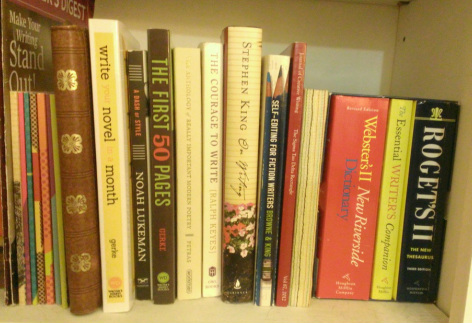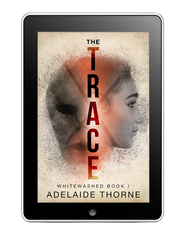|
So you just wrote a book. Congratulations! Seriously. Congratulate yourself, because writing is exhausting, and anyone who says otherwise is not from this planet. Beware of aliens. Anyway, congratulate yourself, but be sure to only pat one shoulder. Because guess what? You're not actually done writing. This is common sense to most people, but it wasn't for me. Sometimes I wonder what was going through my brain two years ago. "I just spill all my thoughts into Microsoft Word and call it a book, right? Isn't that how this works?" Wrong. The me two years ago had no idea what she was doing. (I still don't, but shh.) The me two years ago didn't understand the concept of editing and thought that drafts were for people who just felt like rewriting their story for fun. The me two years ago should have a name so that I don't have to keep typing out "the me two years ago." Let's call her Shirley. Dear Shirley. You're gonna need a bigger printer. Let me introduce editing by saying that I actually really love editing. Me and editing are great pals. We have our moments—mainly the ones where I'm holding a manuscript drenched in tears of self-questioning—but things always work out for the better. You should invite editing over, Shirley, because otherwise your book is still going to be about a girl who plays soccer and a boy named "Ian." *shuddering ensues* I'm now going to recommend that you read some books, Shirley.
On Writing by Stephen King Self-Editing for Fiction Writers by Renni Browne & Dave King The First 50 Pages by Jeff Gerke I read On Writing in tenth grade, and all I remembered was thinking that SK was evil for suggesting that -ly adverbs were bad in dialogue tags. Then I read the "we hate -ly adverbs in dialogue" rule in just about every writing book and realized that SK wasn't the only one. Was my book still suffused with "angrily's" and "sadly's" and "scathingly's" ? Of course. So what I did was go through and highlight every single -ly adverb in my dialogue. Boy, was my manuscript yellow. This is a good rule, but a toughie. In a world where every word matters, it's convenient to sum up a two-sentence-long explanation of the character's body language and emotions with one simple word. Unfortunately, editors today are looking for the opposite. Although Gatsby got away with it (check out Self-Editing for Fiction Writers for more information on this), the rule of thumb is now to avoid using too many. Anyway, so I got rid of most of the -ly adverbs and my book was complete. The end. Okay really. This was one microscopic fraction of the overall process. I found that sitting down with the first draft and asking myself a bunch of questions was helpful. What do I want this book to be about? How do I want readers to feel about [insert character's name]? How long should readers be confused before I let them know what's going on? What is my goal for this book? How should readers feel when they're through reading? And more, and more, and more... I mentioned before that I like to view things holistically, so having the whole book in front of me, regardless of the terrible shape it's in, helps me begin to break it down. Then it's just a matter of figuring out my weak areas and how to fix them. I found that, when I came across a section of my writing that I thought was poor, I would cringe and skim past it, apparently hoping that it would look better the next time I read it. After doing this five thousand times and realizing that I actually hated those sections even more, I knew I had to rewrite them. The editing process really is a double-edged sword. (Avoid clichés in writing, by the way. Read aforementioned books for proof.) On the one hand, you're making your book legible for those who do not share your brain. On the other, more detested hand, you're shredding miles of words and having to replace them with new words. And then doing that ten times. Just know that every single writer in the entire universe (excluding the alien writers who think that writing is easy) has to do this. Every writer has to rip out those chunks of writing that are great but really don't belong in the story. Every writer has to reread embarrassing prose and wonder why she ever thought it was good. Every writer has to sacrifice awesome characters after realizing that the characters are no longer relevant to the plot. I'm preaching to Shirley here. I know everyone else is intelligent enough to understand that writing is a process, not an event. But I didn't know this! I thought it would be so simple! That was one of my more stupid thoughts. But you know what? I also didn't know what a joy writing can be. (Here is where I get all emotional.) Despite the anguish, there is an overarching knowledge of the sheer wonder of writing. You're crafting sentences that no one has crafted before! That's pretty awesome. And that is what makes it all worthwhile. JOIN ADELAIDE'S NEWSLETTER!YOU'RE CONNECTED TO ADELAIDE THORNE!
0 Comments
Leave a Reply. |
Whitewashed Book ICategories
All
|


 RSS Feed
RSS Feed